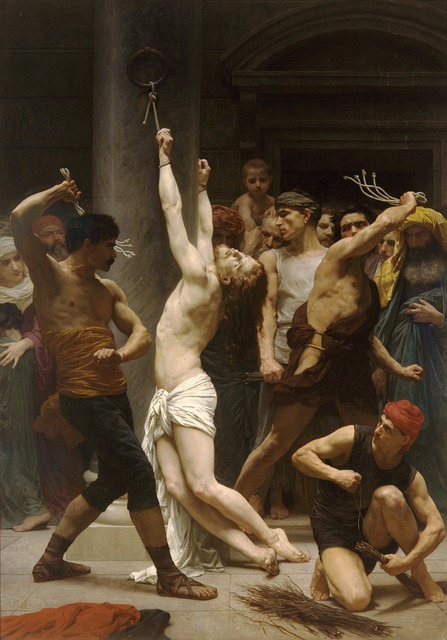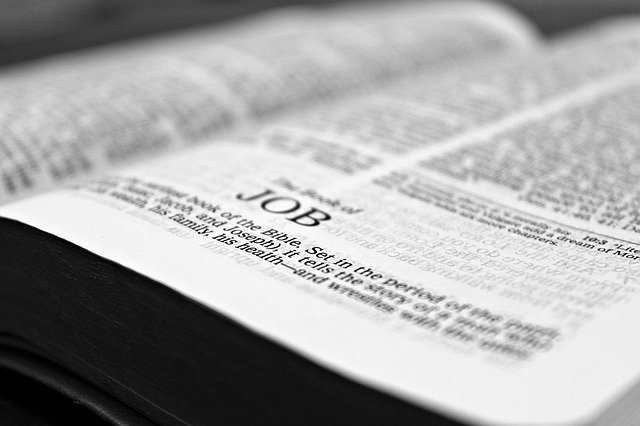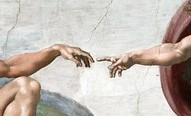
27 And at noon Elijah mocked them, saying, “Cry aloud, for he is a god. Either he is musing, or he is relieving himself, or he is on a journey, or perhaps he is asleep and must be awakened.” – 1 Kings 18:27
Humor Questions
Why is it that we are concerned about whether God has a sense of humor? Is it because humor is so important to us? And if humor is so important to us can we assume that it is a reflection of God; part of being created in His image? Or is our concern regarding whether or not God has a sense of humor one more attempt to bring Him down to our level?
When Adam and Eve walked with God in the Garden during the cool of the day, how much of their fellowship consisted of humor? Is it possible that there was no humor or a need for it before the fall?
While we are asking questions, I have to wonder, to what degree is humor a coping mechanism? I don’t need to tell you that life is full of trials and turmoils. Sadly, some turn to drugs and alcohol as a means of coping. But how many of us might drown ourselves in humor to “escape” life’s problems?
What is Humor?
The origin of the word is in the Latin umor which generally meant “moisture” or “vapor”. In medieval physiology, the word was used of the four fundamental fluids in the body (blood, phlegm, yellow and black bile) which were believed to determine a person’s health or temperament. It was believed that black bile made a person melancholy while yellow bile promoted a brighter disposition. No joking!
I like to think of humor as something that amuses us or makes us laugh. Although not everything that makes us laugh is necessarily humorous. Like being tickled. I suppose the same could be said about amusement. Not everything that amuses us is necessarily humorous. Since I am no Webster, let me quote the Merriam Webster definition of humor:
a : that quality which appeals to a sense of the ludicrous or absurdly incongruous : a funny or amusing quality
Apparently, the only requirement necessary to possess a sense of humor is the ability to experience humor: to be able to be amused by or smile or laugh at something funny. It implies the ability to perceive the incongruous or ludicrous elements of life and to appreciate them. Not a very exclusive group wouldn’t you say? But does God belong to the group?
No Laughing Matter
I have seen passages such as Psalm 59:8 and Psalm 2:4 used as evidence that God has a sense of humor. But what do they reveal if we read them in their context?
7 There they are, bellowing with their mouths
with swords in their lips—
for “Who,” they think, “will hear us?”
8 But you, O Lord, laugh at them;
you hold all the nations in derision.
9 O my Strength, I will watch for you,
for you, O God, are my fortress. – Psalm 59:7-9
4 He who sits in the heavens laughs;
the Lord holds them in derision.
5 Then he will speak to them in his wrath,
and terrify them in his fury, saying,
6 “As for me, I have set my King
on Zion, my holy hill.” – Psalm 2:4-6
While each of these passages state that the Lord laughs, in neither instance is He laughing at humor. To the contrary, each of these passages tell us why He is laughing; He holds those He is laughing in derision. In other words it is a mocking laughter. I don’t think we can make the leap to say that just because a passage states that God laughs, it proves His sense of humor. As we can see from these often cited passages it is just the opposite. God is in no humorous mood as He belittles those who challenge Him.
Creation Evidence
Those that quote passages such as those above as proof texts for the fact that God has a sense of humor will support their argument by pointing to creation. They claim that animals such as monkeys, penguins, and even kittens and puppies are evidence that God has a sense of humor. But how? Just because you and I might find them amusing to watch doesn’t necessarily mean that God does. A child will find humor in Tom and Jerry, but try handing them satire and see what effect it has on them. Besides, if these animals “prove” that God has a sense of humor, what are we to discern about God when we are bitten by a rattlesnake or attacked by a shark. And don’t even get me started on deer flies and mosquitoes.
I am thankful for variety. I am amazed at the number of different species of animals God has populated our planet with. Likewise I am grateful for the variety of plants and flowers God has chosen to create. While I will concede that His creation reveals His power and His Wisdom as I contemplate the complexity of all that comprises our universe, I am not so sure it is proof positive that God has a sense of humor.
Mankind Evidence
Probably the most common “proof” that people offer that God has a sense of humor is that we as humans do. They claim it is simple transitive logic. We were created in God’s image. We have a sense of humor. Therefore God has a sense of humor. Fair enough, but how is your battle with lust going? How about your struggle with fear? Having a problem keeping your pride in check? How long since you told your last lie (who cares how little)? Let’s cut to the chase. How many sins have you committed today?
Adam and Eve were created in the the image of God, unfortunately, because of the fall, their offspring have been born into sin. Be careful when you stand before a mirror hoping to see a reflection of God. That reflection has been distorted. Sorry to say, that face looking back at you may reflect as much of the devil (John 8:44) as it does God.
God does not struggle with lust or fear. Nor does he battle with pride or have a habit of telling lies. It is dangerous to jump to the conclusion that God has a sense of humor just because mankind does. I don’t believe we can make any inference about God’s sense of humor simply by looking around us. Instead, I believe we need to look at His Word, while keeping in mind the importance of context and looking for repetition.
But most important of all, we must remember that God did not inspire the Bible for our entertainment, but to reveal Himself to us for His glory. Accordingly, we better be well acquainted with the Holiness of God before we worry about the humor of God.
O.T. Humor
Space limits the examples I could list, but certainly the Bible has humorous individuals who used wit, satire and dare I say, even sarcasm. To me, perhaps the most humorous line in the Bible is the passage I quoted above from the Prophet Elijah. As Elijah is challenging the prophets of Baal, he taunts them because Baal does not respond to their pleas. Could it be possible Baal was sleeping or stepped aside to the bathroom? I doubt that the prophets of Baal appreciated the humor but I find it hilarious. And while we’re waiting for Baal to step out of the restroom, let’s turn to Isaiah.
Short Beds
Isaiah Chapter twenty-eight refers to a foolish treaty King Hezekiah made with the Egyptians. The treaty that they expected to bring them the protection of the Egyptians instead “unleashed” the disappointment of God. Isaiah wittingly alluded to this arrangement not only as a covenant with death but compared it with a bed that was too short to stretch out on with covers too narrow to wrap oneself in. A humorous illustration to simply point out, you’ve made your own bed, good luck finding rest in it! But it isn’t the only humorous word picture Isaiah paints.
Shortened Hands
As the Israelites are expressing their frustration that God has not fulfilled His promises, Isaiah uses another humorous word picture to show them the folly of their thinking. “Behold, the Lord‘s hand is not shortened, that it cannot save, or his ear dull, that it cannot hear…” (Isaiah 59:1a). Before Isaiah exposes the sins of the people as the cause for their predicament, he informs them that God has not lost any of His strength or hearing. With a twist of humor.
N. T. Humor
We see humor in the New Testament as well as the Old, many of which seem to include Peter, who had a habit of putting his foot in his mouth. Whether he is offering to build booths (Mt. 17:4), correcting Christ (Mt. 16:22), or defying a detachment (John 18:10), Peter often finds a way to amuse us. But I think two of the most humorous events in the New Testament involve Peter and “jail breaks”
Preach It Brother
In Acts Chapter five we have the account of the arrest of Peter and John. The jealous Sadducees had heard enough from the Apostles so they thought to silence them behind prison bars. God did not agree with the assessment of the Sadduccees, rather He wanted Peter and John to do more preaching so they were released by an angel with the command to preach in the temple. The next day, the high priest calls his council together to examine the prisoners. As “the council and all the senate of Israel” are gathered together in all of their pomp, the apostles are summoned. But they never arrive. While these important dignitaries are waiting to interrogate their prisoners, the prisoners are back in the temple preaching. Oh to be a fly on the wall to see the red faced assembly. I probably would have laughed my wings off.
 Someone’s Knocking at the Door
Someone’s Knocking at the Door
The second prison incident is recorded in Acts Chapter twelve. This chapter records the death of James and the imprisonment of Peter. While Peter is in prison the church is fervently praying. Miraculously, Peter is freed by an angel and makes his way to the house of the mother of John Mark where many were gathered in prayer for him. As Peter knocks at the door, his voice was recognized by a servant girl. Instead of letting Peter in, however, she ran to those gathered in prayer and they did not believe her. While they are praying for Peter’s release, Peter is standing at the door still desperately knocking. I’m sure Peter didn’t find it funny at the time but later on they all probably laughed at the irony.
Speak for Yourself
Now that we have established that there is humor and humorous people in the Bible, let’s look at specific texts about God the Father and Jesus. We can start just about at the very beginning.
Name Games
Genesis chapter two records the “creation” of man. After speaking the rest of creation into being, God forms man out of the earth and woman out of man’s rib. As if to remind us or our humble origins, God appears to use puns as he designates their sexes (‘adam from ‘adaman and ‘ishshah from ‘ish). We see this early trend continue in Genesis Chapter three with a play on Eve’s name and then again in Genesis Chapter eleven with a pun on the word babble as the Tower of Babel was destroyed. But things were just getting started. According to one estimate, there are more than 500 word plays (paronomasia) in the Old Testament alone. Certainly more than I want to cover.
What’s For Supper?
In Numbers Chapter eleven, God promises to provide meat for His people. Moses deems this to be a daunting task, and for whatever reason, decides to inform God of the number of people in the camp. As if God didn’t know. By way of reminding Moses that His powers were not exhausted, God asks Moses, “Is the Lord‘s hand shortened? Now you shall see whether my word will come true for you or not” (Numbers 11:23). The ensuing feeding of quail and accompanying plague reminded Moses that the Lord’s hand definitely was not shortened.
The Original Mr. Ed
Numbers chapter twenty-two records the humorous exchange between Balaam and his donkey. God is displeased with the mission of Balaam, so He sends an angel to block his path. While Balaam cannot see the angel, the donkey he is riding can. The first time the angel is encountered, Balaam’s donkey ran off of the road and into a field, which drew the ire of Balaam. Balaam decided to repay his donkey by striking him. The second time the donkey saw the angel, they were passing through a narrow path, and the donkey’s reaction caused Balaam’s foot to be bumped against the wall, which precipitated another beating. The third time the donkey saw the angel in their path she did the wise thing, she simply lied down. Furious, Balaam began beating the poor creature with his staff. Imagine Balaam’s surprise when God opened the donkey’s mouth and she questioned Balaam as to why he was beating her! But the story gets even more humorous. Balaam actually carries on a discourse with his beast of burden as she justifies her behavior. If I was looking for a proof text for God’s sense of humor, this might be the strongest argument!
Turn Up The Heat
The Book of Jonah ends with an amusing exchange between God and His upset Prophet. After reluctantly preaching to his enemies, Jonah is upset with God for withholding His judgment. In the original translation, Jonah is “hot”. So much so that he says he wants to die. If Jonah thought he had a right to be hot, God was about to oblige him.
After challenging Jonah as to whether he is justified in being so “hot”, God decides to bring Jonah back in line by turning up the heat. By removing Jonah’s source of shade and hitting him with a hot wind, God allows Jonah to simmer under the hot sun. Once Jonah had “melted” with the sun beating on his head, God decided to “mold” him with a rebuke.
What does Jesus Say?
As I stated above, making the claim that God has a sense of humor just because fallen man does, is faulty logic. But how about Jesus? He was not born in sin, nor did He ever sin. As a matter of fact, in contrast to our poor reflection of God, the Bible tells us that, “Jesus is the image of the invisible God” (Colossians 1:15). Jesus Himself, said these words to Philip, “Whoever has seen me has seen the Father” (John 14:9).
Since Jesus was not affected by the fall, our attempt to use transitive logic will work. If Jesus had a sense of humor, and He is the exact imprint of God’s nature (Hebrews 1:3), then assuredly God has a sense of humor.
Pass the Tweezers
Although John tells us that Jesus wept, there are no references to Jesus laughing. However, we do see His wit as He uses hyperbole, parallelism and word play in his interactions. When Jesus rebukes his audience of hypocrisy, He levels this charge:
3 Why do you see the speck that is in your brother’s eye, but do not notice the log that is in your own eye? 4 Or how can you say to your brother, ‘Let me take the speck out of your eye,’ when there is the log in your own eye? – Matthew 7:3-4
 Camel Lessons
Camel Lessons
We see similar hyperbole in Matthew chapter twenty-three when Jesus is condemning the religious leaders for their hypocrisy, this time He accuses them of, “straining out a gnat and swallowing a camel” (verse 24). But His wit wasn’t reserved only for hypocrites, Jesus also made this famous warning to the wealthy, “Again I tell you, it is easier for a camel to go through the eye of a needle than for a rich person to enter the kingdom of God” (Mt. 19:24).
A Stone By Any Other Name
Like we saw with the Father, Jesus also used word play. In His case He did so using Peter (Petros) and rock (petra) (Mt. 16:18). And when He told the parable of the great banquet, we have to believe Christ was using humor when one of the guests said he could not make the feast because he was recently married (Luke 14:20)! Apparently Jesus was familiar with the expression, “happy wife happy life”.
Testing Jesus
In Matthew chapter twenty-two, we see Jesus being tested by His opponents. They want to discredit Jesus and expose Him before His followers as a fraud. First, the Pharisees try to trap Jesus with a question about paying tribute taxes to Caesar. Is it right to pay them or not? Then, the Sadducees use a ridiculous scenario to try to undermine the teaching of the resurrection since they do not believe in it. If this woman was married to seven different brothers, which one will be her husband in Heaven? Next, the Pharisees make another attempt by sending a Law expert to test Jesus regarding the greatest commandment in the Law.
What Jesus Knows
All three of these attempts to test Jesus and trip Him up failed. Miserably. In their attempt to expose Jesus, His opponents were made to look like fools by His wisdom. In fact, Jesus followed up their questions with a question of His own, “What do you think about the Messiah? Whose son is he” (Mt. 22:42)?
His opponents were no match. In fact, the text tells us that they did not ask Him another question after that day. Good decision.
Some see the parallelism Jesus used in Matthew chapter twenty-two as evidence of His sense of humor. To me, this chapter is a reminder of the wisdom of Jesus. In fact, Jesus is God, and as such He is omniscient. If a sense of humor requires recognition of the incongruous, who would better recognize such than the Creator of the universe? Whether He finds the incongruous amusing or funny is another matter. But based on what we have looked at thus far, I am guessing that quite often He may.
 Gift
Gift
Regardless if whether we believe God has a sense of humor, I believe He has given it to mankind as a gift. While it may not be a miracle drug to remove life’s troubles, it does provide a medicine for our souls (Proverbs 17:22) until we are removed from our troubles. Once in the presence of our holy God, I don’t believe we will be concerned about humor and the incongruous, as everything will be in perfect order. In Heaven, humors fleeting laughs, as beneficial as they are now, will give way to eternal joy. Now that is definitely something to smile about.
“Blessed are you who weep now, for you shall laugh.” – Luke 6:21b


 It Is Finished
It Is Finished
